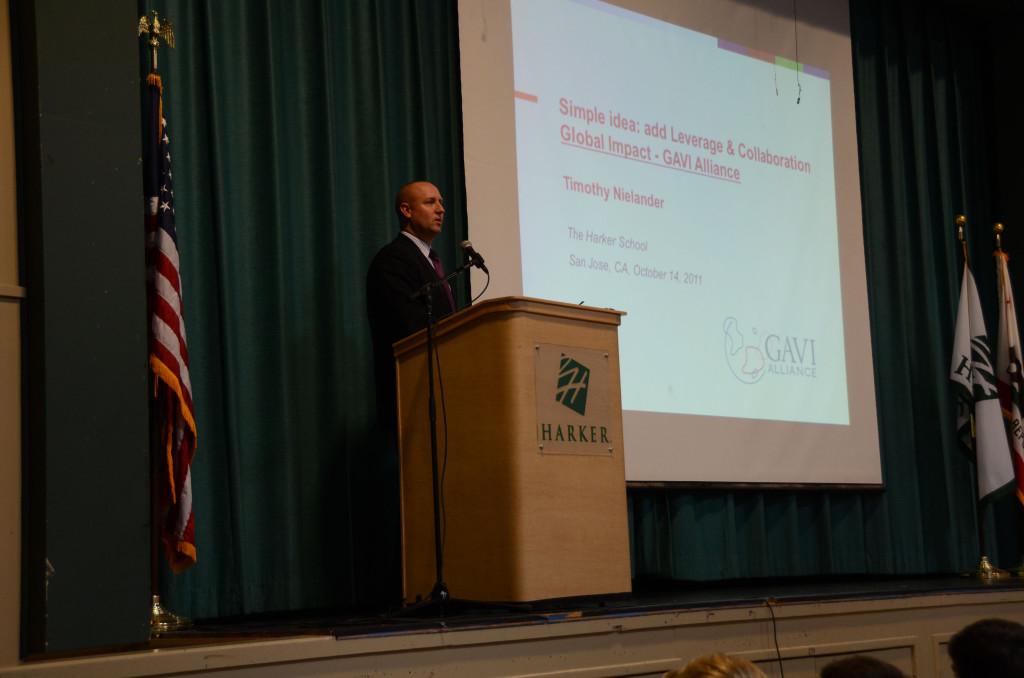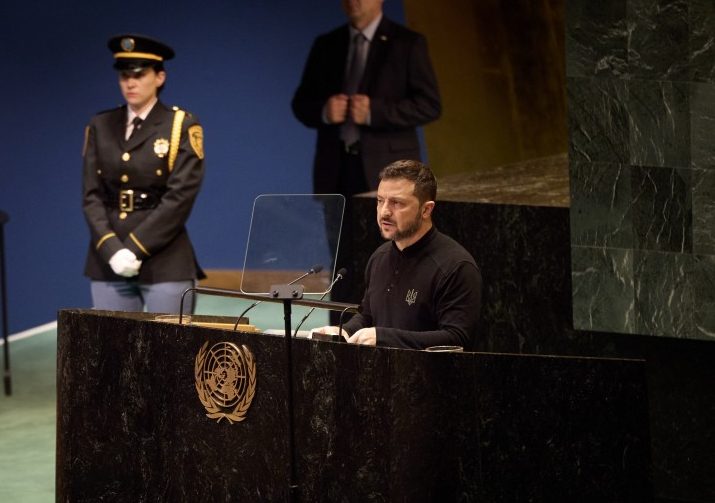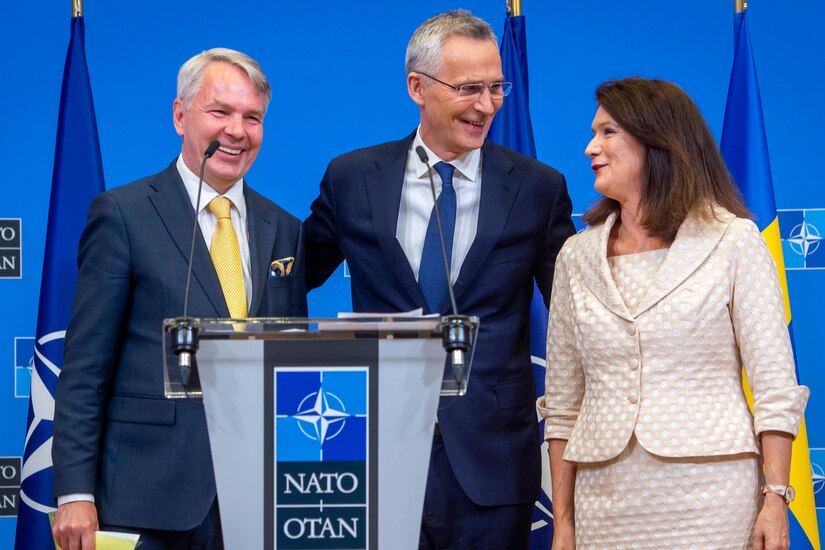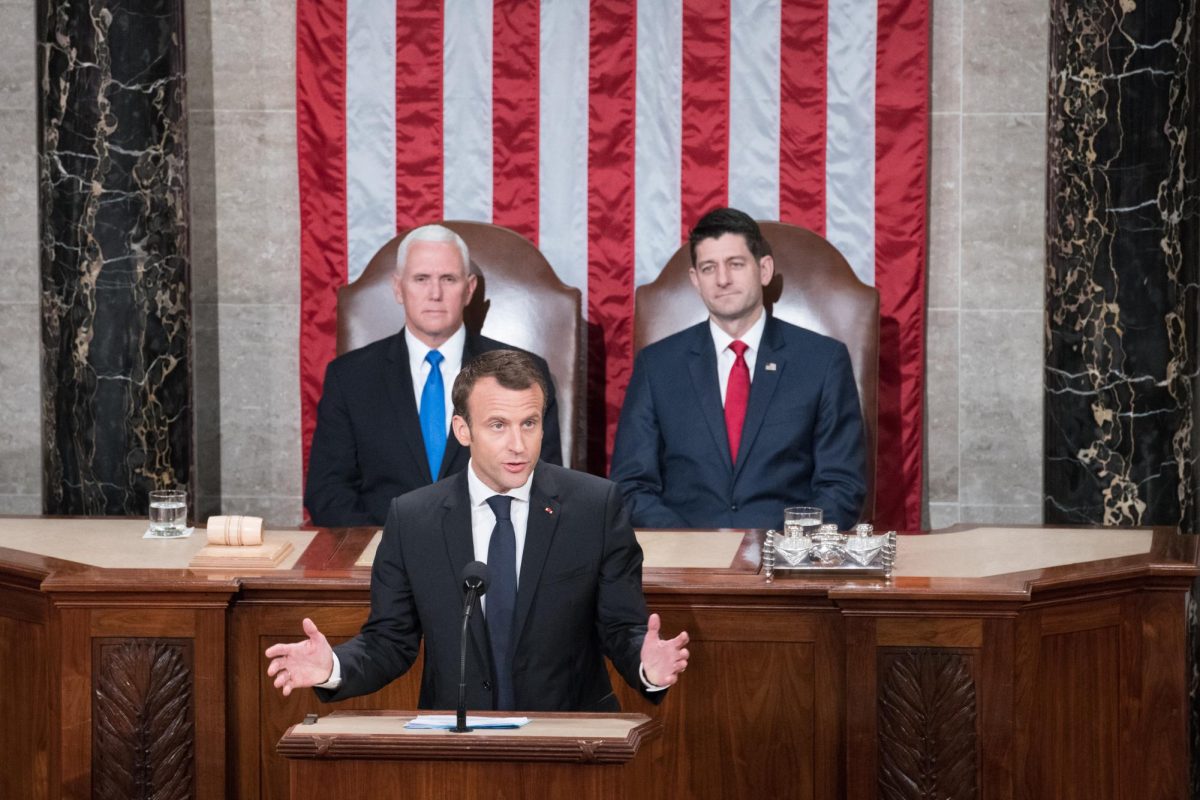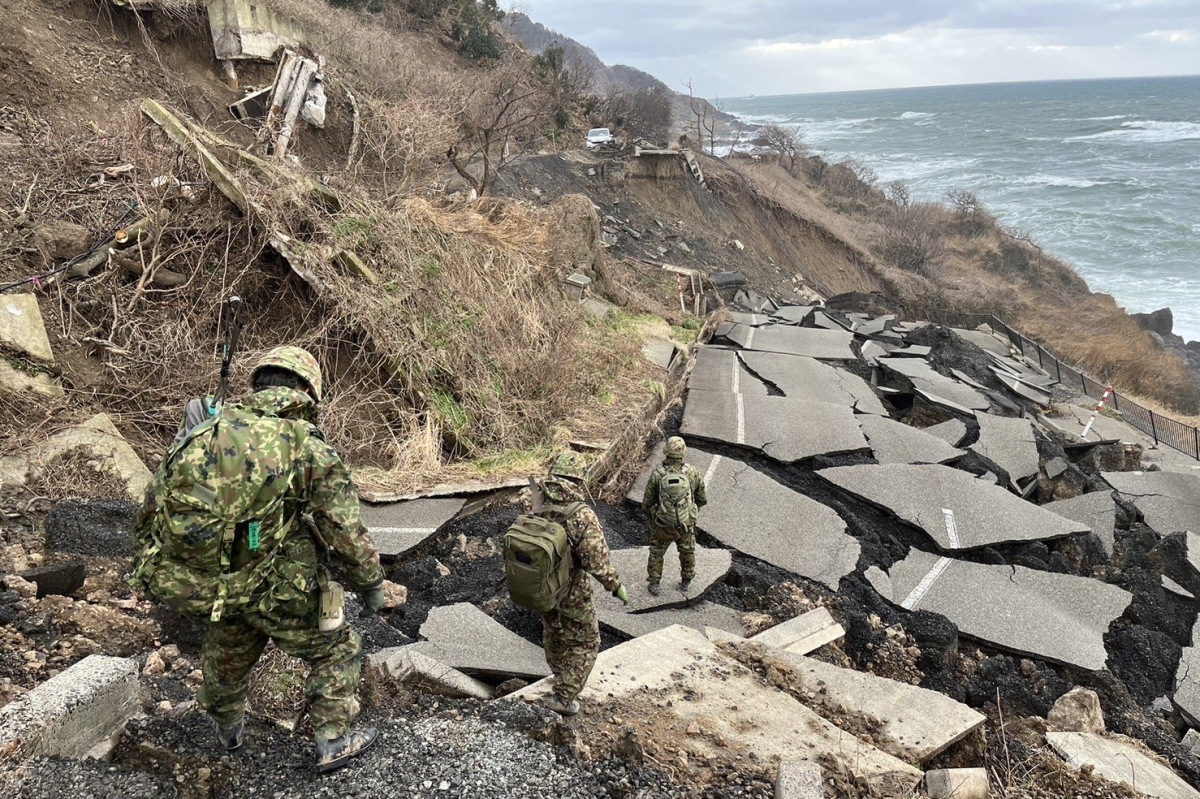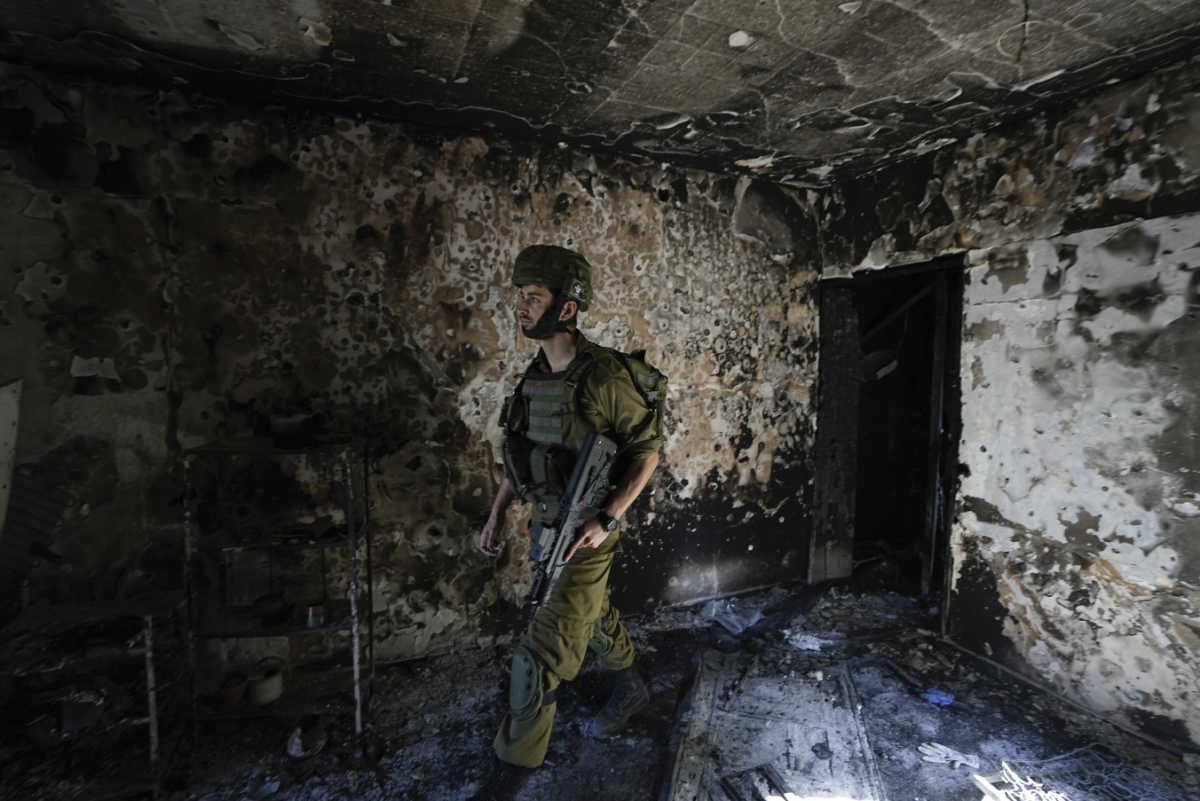On October 14, Timothy Nielander, representative from Global Alliance for Vaccination and Immunizations (GAVI), spoke to the Upper School about the needs for vaccinations in third-world countries during an assembly created by the Global Empowerment and Outreach (GEO) club.
Nielander presented various video clips and spoke about the crisis in many developing nations. He remains hopeful that GAVI will aid the 19 million children without immunizations against basic diseases around the world.
GAVI works to not only provide vaccinations, but also to make them affordable, some even as inexpensive as two to three dollars a piece. A major disease that they work to immunize against is pneumonia, the world’s leading child killing disease.
Every year, 1.7 million children die from diseases that could have been prevented by vaccines, 98% of these children are from third world countries.
GAVI has a set process for vaccinations: a country first requests assistance, their request is then reviewed to check for biases, and finally, if approved, the country begins receiving vaccinations for its population.
The aid can come in one of four ways: accelerating the vaccine usage, strengthening the health system, increasing predictability, and shaping the vaccination market. The target recipients for these vaccinations are young children, as well as mothers.
Many students, such as Agata Sorotokin (9), believed that the presentation helped reveal the dangers of diseases that those in first-world countries may not be aware of.
“[It was] very informative and helped the students find out what’s going on in the world and [stressed] the importance of having organizations like GAVI to help child mortality go down,” she said.
Nihal Uppugunduri (10) agreed with Agata and thought that some of the facts that he brought up were interesting.
“[I was] surprised by the statistics brought up […] For example that a child dies of pneumonia every 20 seconds,” he said.
However, other students disagreed, remarking that the speaker may have retracted from the message.
“The concept was inspirational but the speaker was kind of dull,” Leon Chin (9) said.
To raise funds for GAVI, GEO is running several activities during the week of October 17, such as the vow of silence. In this activity, students will pledge to remain quiet for a certain amount of time, with their friends and family sponsoring them to do so.


















![“[Building nerf blasters] became this outlet of creativity for me that hasn't been matched by anything else. The process [of] making a build complete to your desire is such a painstakingly difficult process, but I've had to learn from [the skills needed from] soldering to proper painting. There's so many different options for everything, if you think about it, it exists. The best part is [that] if it doesn't exist, you can build it yourself," Ishaan Parate said.](https://harkeraquila.com/wp-content/uploads/2022/08/DSC_8149-900x604.jpg)




![“When I came into high school, I was ready to be a follower. But DECA was a game changer for me. It helped me overcome my fear of public speaking, and it's played such a major role in who I've become today. To be able to successfully lead a chapter of 150 students, an officer team and be one of the upperclassmen I once really admired is something I'm [really] proud of,” Anvitha Tummala ('21) said.](https://harkeraquila.com/wp-content/uploads/2021/07/Screen-Shot-2021-07-25-at-9.50.05-AM-900x594.png)







![“I think getting up in the morning and having a sense of purpose [is exciting]. I think without a certain amount of drive, life is kind of obsolete and mundane, and I think having that every single day is what makes each day unique and kind of makes life exciting,” Neymika Jain (12) said.](https://harkeraquila.com/wp-content/uploads/2017/06/Screen-Shot-2017-06-03-at-4.54.16-PM.png)








![“My slogan is ‘slow feet, don’t eat, and I’m hungry.’ You need to run fast to get where you are–you aren't going to get those championships if you aren't fast,” Angel Cervantes (12) said. “I want to do well in school on my tests and in track and win championships for my team. I live by that, [and] I can do that anywhere: in the classroom or on the field.”](https://harkeraquila.com/wp-content/uploads/2018/06/DSC5146-900x601.jpg)
![“[Volleyball has] taught me how to fall correctly, and another thing it taught is that you don’t have to be the best at something to be good at it. If you just hit the ball in a smart way, then it still scores points and you’re good at it. You could be a background player and still make a much bigger impact on the team than you would think,” Anya Gert (’20) said.](https://harkeraquila.com/wp-content/uploads/2020/06/AnnaGert_JinTuan_HoHPhotoEdited-600x900.jpeg)

![“I'm not nearly there yet, but [my confidence has] definitely been getting better since I was pretty shy and timid coming into Harker my freshman year. I know that there's a lot of people that are really confident in what they do, and I really admire them. Everyone's so driven and that has really pushed me to kind of try to find my own place in high school and be more confident,” Alyssa Huang (’20) said.](https://harkeraquila.com/wp-content/uploads/2020/06/AlyssaHuang_EmilyChen_HoHPhoto-900x749.jpeg)



